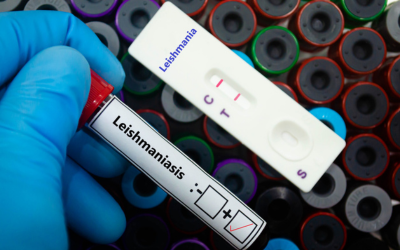
Climate Change Impacts on Vector Borne Diseases
Year: 2024 | Competency/Strategic Skill: Public Health Fundamentals | Priority Topic: Other Infectious Diseases | Setting: Online | Format: Live | Sponsor: Emory University/Central Office, University of Alabama at Birmingham
Overview:
This is a live webinar on October 23, 2024, at 12:00 pm ET. Participants will use Zoom to join.
In this webinar Dr. Luis Chaves will present results from his research on Malaria, Leishmaniasis and other vector-borne diseases that have illustrated the importance of climate change to understand emerging ecological and epidemiological patterns on the transmission of vector-borne diseases.
The webinar is presented by the Alabama Regional Center for Infection Prevention and Control and cosponsored by the Deep South Center for Occupational Health and Safety.
Luis Fernando Chaves, PhD (Michigan 2008 in Ecology and Evolutionary Biology), is an associate professor in the IU School of Public Health-Bloomington Department of Environmental and Occupational Health. He has been studying insect vectors and the diseases they transmit since he was an undergraduate in Venezuela, and he has published extensively on the ecology of insect vectors, their relationship to transmission of pathogens and the response of vector-borne diseases to climate change. Dr. Chaves has directed research projects in Costa Rica, Panamá, USA, Venezuela and Japan, and he has collaborated in projects based in Canada, Brazil, El Salvador, Nicaragua, Taiwan, Korea, Vanuatu and Kenya, among other places, while holding academic and/or government positions in the US, Japan, Panama and Costa Rica.
Learning Objectives: By the end of this webinar, participants will be able to:
- Recognize the importance of Global Climatic Phenomena like the El Ni~no Southern Oscillation and the Indian Ocean Dipole and their teleconnections for the transmission of vector-borne diseases.
- Recognize that impacts of climate change on vector-borne disease transmission are mediated by impacts of changing environments on the abundance of insect vectors, but also on the relationship between insects and pathogens.
- Understand that impacts of climate change on vector-borne diseases are conditioned by the dominant social conditions of locations where transmission occurs.
CERTIFICATE: The Deep South Center for OH&S is an approved provider of continuing education units for nurses by the AL Board of Nursing (Provider ABNP0420 Expiration Date 7/10/2025) and has awarded this program 1.2 ABN CEUs. All other professionals awarded .1 CEUs.
This project is supported by the Health Resources and Services Administration (HRSA) of the U.S. Department of Health and Human Services (HHS) under grant number UB6HP31680, Public Health Training Centers for $4,348,992. This information or content and conclusions are those of the author and should not be construed as the official position or policy of, nor should any endorsements be inferred by HRSA, HHS or the U.S. Government.
